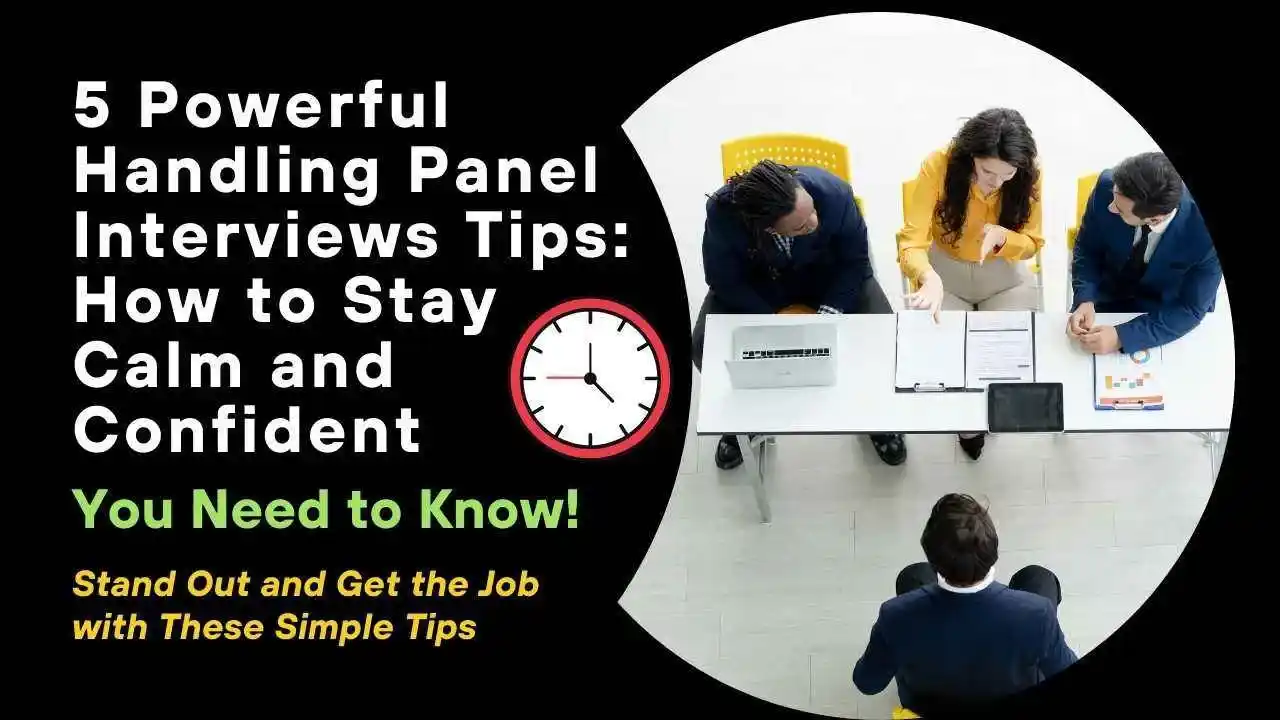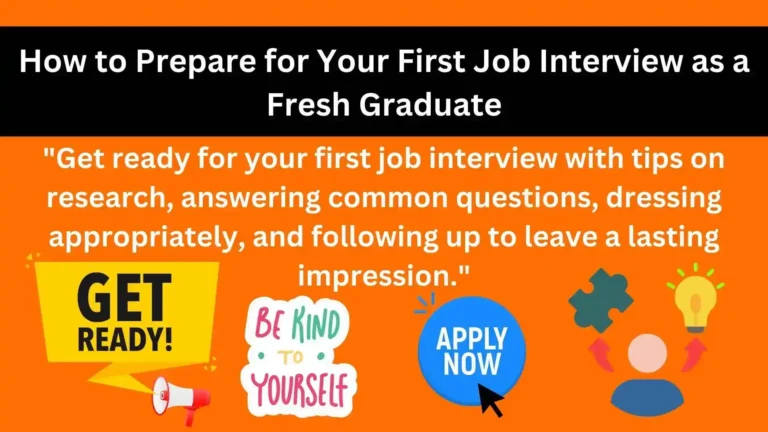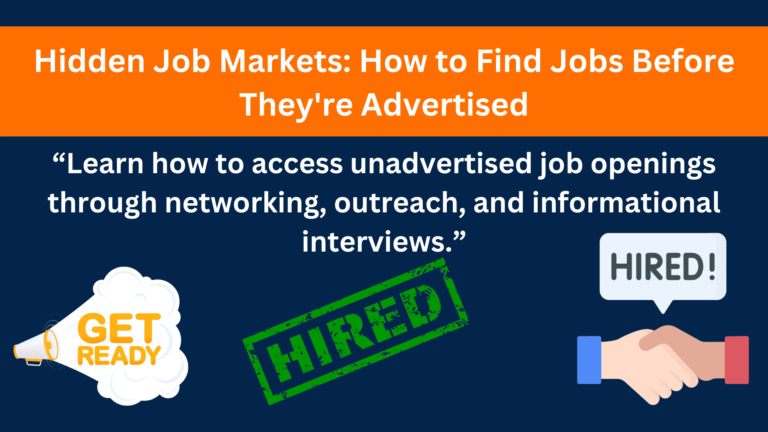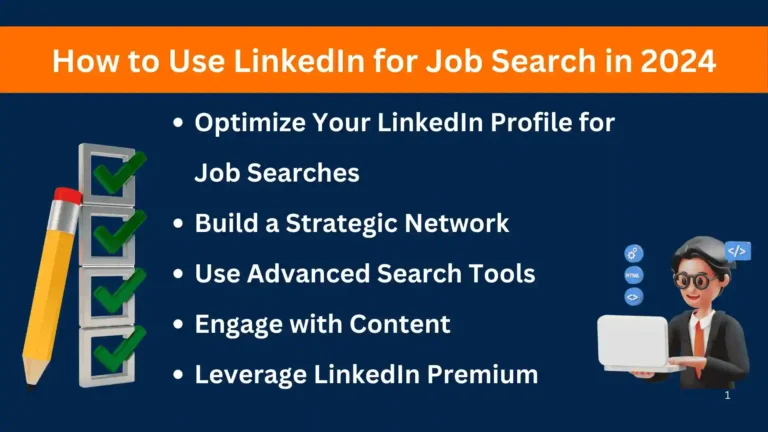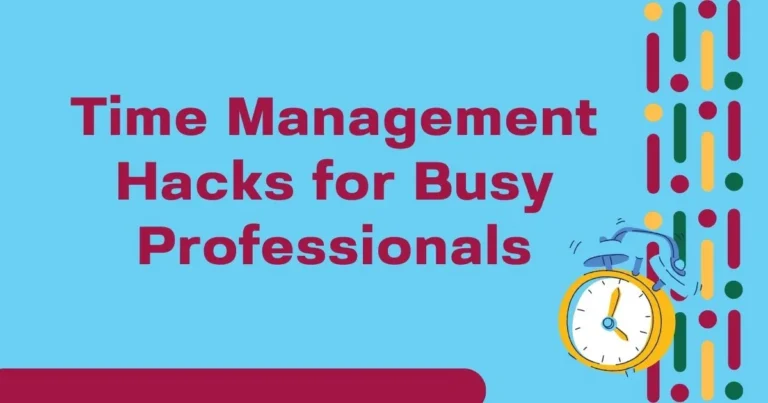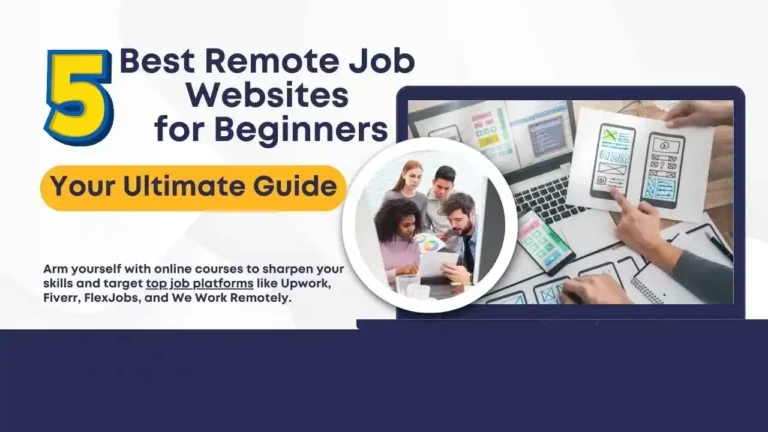Panel interviews can be intimidating. Unlike traditional one-on-one interviews, a panel interviews involve multiple interviewers assessing your qualifications, skills, and demeanor simultaneously. Staying calm and confident is essential for making a lasting impression and showcasing your potential to future employers. Whether you’re preparing for a panel interview for 911 dispatcher or any other field, mastering the art of handling these scenarios can set you apart from other candidates.
In this comprehensive guide, we will explore expert strategies to help you ace your next panel interview. We’ll cover essential tips, preparation strategies, actionable steps, and templates for time management while responding to questions.
Additionally, we’ll provide pros and cons for both employers and employees, marking templates for different industries, key takeaways, and answers to common questions.
Table of Contents
Key Tips for Handling Panel Interviews
1. Research Your Interview Panel
Knowing who will be on your interview panel gives you an edge. When you know their roles and backgrounds, you can tailor your responses to their specific interests and concerns.

Actionable Steps:
- Ask for Details: Politely request the names and titles of the panel members when you receive your interview schedule.
- Do Your Homework: Look up their LinkedIn profiles, company bios, or any professional contributions.
- Tailor Responses: Frame your answers to highlight aspects of your experience that align with each panelist’s expertise.
2. Practice Effective Eye Contact
Maintaining good eye contact with all panel members shows confidence and inclusivity.

Actionable Steps:
- Scan the Room: When answering questions, briefly make eye contact with each panel member.
- Start and End Strong: Focus on the person who asked the question when starting and finishing your response.
- Avoid Staring: Keep your gaze natural and engaging.
3. Master Time Management
In panel interviews, time management is crucial to ensure you provide complete yet concise answers.

Actionable Steps:
- Use the STAR Method: Structure your answers using Situation, Task, Action, and Result.
- Watch for Non-Verbal Cues: Adjust your response length based on panelists’ engagement.
- Practice Mock Interviews: Time your answers during practice sessions to avoid rambling.
4. Handle Stress with Confidence
Nerves can impact your performance. Learning how to manage stress is critical.

Actionable Steps:
- Practice Mindfulness: Deep breathing exercises can help calm your nerves.
- Positive Affirmations: Remind yourself of your achievements and qualifications.
- Visualization: Picture yourself succeeding in the interview to boost confidence.
5. Follow Up with Gratitude
A thoughtful follow-up can leave a positive impression.

Actionable Steps:
- Send Thank-You Emails: Address each panel member individually and mention specific points discussed.
- Reaffirm Your Interest: Highlight your enthusiasm for the role and company.
- Provide Additional Information: Offer any relevant documents or clarifications if needed.
Panel Interview Preparation
Pros and Cons of Panel Interviews for Employers
Panel interviews have become a common hiring practice, offering a structured approach to evaluating candidates. In this format, multiple interviewers from different departments assess a candidate simultaneously, providing diverse perspectives on their suitability for the role. While this approach allows for comprehensive evaluation and reduces individual bias, it may also present logistical challenges and create a more intimidating environment for candidates. Understanding the advantages and limitations of panel interviews can help employers determine when this method aligns best with their hiring objectives.
| Pros | Cons |
|---|---|
| Comprehensive assessment of candidates from multiple perspectives | Scheduling challenges for multiple panel members |
| Faster decision-making through collective input | Potential for biased opinions |
| Opportunity to assess teamwork and communication skills | Can be intimidating for candidates, leading to poor performance |
Pros and Cons of Panel Interviews for Employees
Panel interviews can be both a valuable opportunity and a daunting experience for job seekers. This format allows candidates to engage with multiple decision-makers simultaneously, providing a chance to showcase their skills and personality to a diverse group. It also enables candidates to gain a broader understanding of the company culture and team dynamics. However, the presence of several interviewers may create a more intense atmosphere, potentially increasing anxiety. Being prepared and confident can help candidates navigate this interview style effectively.
| Pros | Cons |
| Opportunity to impress multiple decision-makers at once | Can be overwhelming and stressful |
| Diverse perspectives lead to fairer evaluation | Limited time to build rapport with each panelist |
| Immediate feedback from different departments | Increased pressure to maintain composure |
Panel Interview Marking Templates for Different Industries
Panel Interviews Tips Template for IT Industry
Panel interviews in the IT industry require candidates to demonstrate both technical expertise and strong problem-solving abilities while showcasing effective communication skills. To excel in this setting, it’s essential to research the company’s tech stack, prepare for both technical and behavioral questions, and familiarize yourself with the roles of each panelist. Engaging confidently with the panel, asking insightful questions, and providing concise, yet detailed, responses can leave a lasting positive impression. The right preparation and approach can significantly enhance your chances of success in this interview format.
| Criteria | Weightage (%) | Comments |
| Technical Knowledge | 40% | Proficiency in relevant technologies |
| Problem-Solving Skills | 30% | Ability to handle complex issues |
| Communication Skills | 20% | Clear and effective communication |
| Team Collaboration | 10% | Working well with others |
Panel Interviews Tips Template for Healthcare Industry
Panel interviews in the healthcare industry often focus on assessing clinical expertise, problem-solving abilities, and interpersonal skills crucial for patient care and teamwork. To excel, candidates should be well-prepared to discuss their experience with patient care, medical technologies, and compliance with healthcare regulations. Demonstrating empathy, effective communication, and collaboration skills is vital. Engaging with each panelist respectfully, answering questions thoughtfully, and highlighting a commitment to patient-centered care can make a positive and lasting impression.
| Criteria | Weightage (%) | Comments |
| Clinical Knowledge | 50% | Understanding of medical procedures |
| Patient Care Skills | 30% | Empathy and professionalism |
| Communication Skills | 10% | Engaging with patients and staff |
| Compliance and Ethics | 10% (👈download book) | Adherence to medical regulations |
Time Management Template for Handling Panel Interviews
Effective time management is crucial when handling panel interviews, as candidates must balance thoughtful responses with maintaining engagement across multiple interviewers. Proper preparation, including practicing concise answers and prioritizing key points, helps manage time effectively during the session. Allocating time to engage with each panelist and ask insightful questions is equally important. Following a structured approach ensures candidates leave a strong impression without rushing or omitting critical information.
| Time Block | Activity |
| First 2 Minutes | Brief introduction and initial greetings |
| 3 to 8 Minutes | Answering the first set of questions using the STAR method |
| 8 to 15 Minutes | Follow-up questions and deeper discussions |
| 15 to 20 Minutes | Wrap-up and final remarks |
| Post-Interview | Ask insightful questions to the panel |
Key Takeaways
- Panel interviews require thorough preparation and strategic communication.
- Researching panel members, practicing time management, and maintaining composure are essential.
- Templates for marking and time management can streamline your approach.
FAQs on Panel Interviews
What is a panel interview?
A panel interview is a type of job interview where a group of interviewers—typically from different departments or levels within the organization—evaluate a candidate at the same time. This method helps gather diverse perspectives on the candidate’s qualifications, communication skills, and cultural fit.
How do I prepare for a panel interview?
To prepare effectively for a panel interview:
Research the company and each panelist (if names are provided)
Practice answering behavioral and situational questions
Prepare concise stories using the STAR method (Situation, Task, Action, Result)
Rehearse maintaining eye contact with different panel members
Bring multiple copies of your résumé or portfolio
What should I wear to a panel interview?
Dress in professional attire that aligns with the company’s culture. When in doubt, opt for business formal. Looking polished demonstrates respect for the opportunity and helps make a strong first impression.
How do I handle conflicting questions from panelists?
Stay calm and respectful. Address the first question clearly, then politely say, “I’ll now address the second part…” or ask for clarification. It’s important to demonstrate professionalism, adaptability, and clarity under pressure.
How long does a panel interview typically last?
Panel interviews usually range from 30 to 60 minutes, depending on the role’s complexity and the number of interviewers. Some may extend longer if additional tasks or tests are involved.
Should I make notes during a panel interview?
Yes, taking brief notes—especially about important points or names—can help you recall details later for follow-up. However, avoid excessive note-taking that disrupts eye contact or engagement with the panel.
How do I manage stress during a panel interview?
To stay calm and focused:
Practice deep breathing before the interview
Visualize a successful outcome
Maintain good posture and steady eye contact
Pause briefly before responding to gather your thoughts
Reframe anxiety as excitement to channel energy positively
Can I ask questions during a panel interview?
Absolutely. Asking thoughtful, role-specific questions shows your interest and engagement. Prepare 2–3 questions that demonstrate research about the company or curiosity about the team dynamics.
What follow-up steps should I take after a panel interview?
Send individual thank-you emails to each panelist within 24 hours. Personalize each message by mentioning a specific topic discussed or shared insight. This reinforces professionalism and helps you stand out.
What is the biggest challenge in panel interviews?
The primary challenge is maintaining consistent engagement with multiple interviewers while giving clear, structured answers. It can also be tough to read different personalities and keep rapport with everyone simultaneously.
How should I address each panellist during the interview?
When answering a question, begin by addressing the panelist who asked it, then gradually shift eye contact to include the others. Acknowledge everyone to build rapport and show confidence in group dynamics.
What are common mistakes to avoid in a panel interview?
Avoid:
Ignoring any panelist or focusing on just one
Giving long-winded or generic answers
Failing to ask follow-up questions
Being unprepared about who the interviewers are (if info is provided)
Forgetting to follow up with each individual after the interview
Conclusion
Panel interviews may seem daunting, but with the right preparation and mindset, you can turn them into a valuable opportunity to showcase your skills and expertise. By researching your panel, managing your time effectively, and staying confident, you’ll leave a lasting impression on potential employers.
What is your thoughts on Handling Panel Interviews
Have you ever faced a challenging panel interview? Share your experiences, tips, or lessons learned in the comments below! Don’t forget to check out our related posts for more interview preparation insights.

